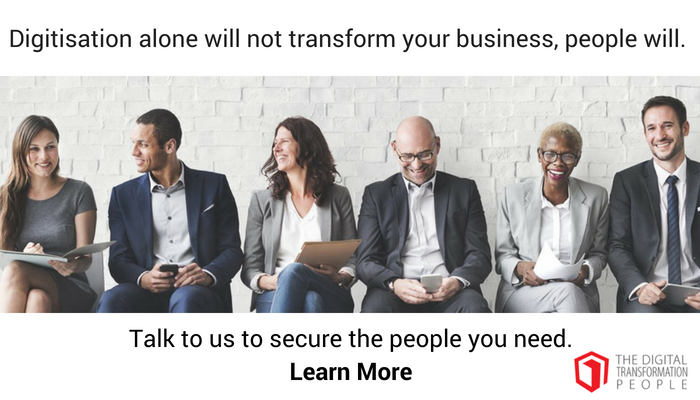A lot of times when the prevalent industry trends are discussed among industry folks, there are usually two directions in which the conversation goes. It is either varying states of disbelief at the rate of change within the business and IT landscapes; or it is enthusiastic agreement on the importance of moving with the times and adopting a digital infrastructure.
The former is born of a dedication to supposedly “tried and tested” methods, which arguably are worth next to nothing in this day and age. And the latter is what more and more business leaders and executives need to be doing at the moment.
Relevance of Digital Transformation
The economy, for the most part, has begun to undergo a massive change in the way the entire infrastructure and various other components function. This is due to the onset of the digital age, which has made the idea of a “traditional” economy effectively obsolete; and in good time too, since the relevance of digital transformation is growing by leaps and bounds each day, with the completion of that transformation being predicted to be around 2020, according to some industry experts.
It is estimated that a whopping 212 billion (yes, Billion!) sources will be in connection with each other by the time the worldwide digital transformation is complete. To keep up with connectivity at this scale, the business of today has to radically transform itself into one that is not only connected to its customers via cloud based networks, but also internally linked through a similar network. But more than that, it needs a digital core, if it is to compete in the tough marketplace of today.
How a Digital Core Impacts a Business
In a recent presentation in London on the importance of innovation in the current business landscape, Martin Frimodt, a Director at ATP and SAP Finance Head, spoke about how the ATP next generation business suite has revolutionary characteristics, and can potentially improve the way a business conducts its processes, both internally as well as externally. A next generation business suite is an ideal entry into the broader landscape, for the following reasons.
- It promoted and enables the development of a digital core.
- Since digital transformation requires a digital core to be in place and functioning, a competent business suite can work wonders for today’s businesses.
- A seamless transition onto the digital plane is the Holy Grail for businesses. This can be facilitated via the use of advanced business suites.
- If “cost-effective” is the buzz term of consideration for a business, a digital business suite, as explained by Martin Frimodt, can be immensely advantageous, since it is a lot cheaper to shift to such a system, as compared to transitions onto other systems.
In his address, Martin Frimodt discussed how his company chose to adopt the new suite now rather than in the future, in order to have a stable and functioning array of financial services. At its base, according to him, was the IT team, who not only constantly analyzed the existing system, but also generated reports of how smooth the transition would be. In a way, IT was integral to the transformation and transition onto a new suite.
The process is currently underway at Frimodt’s company, and so far it has been easy sailing according to Martin Frimodt. This shows how a company that aims to usher itself and others along with it, into the new, efficient digital age, can do so without facing an overwhelming number of hiccups. Even when the task is as seemingly outlandish as bringing the world of IT into the world of finance, it can be done with the help of a good business suite.
Importance of Cost-Efficiency in Migration
For a small enterprise, operating on a local scale, the cost of migration can be very low. This is because the amount of data which needs to be transferred and the number of processes that need to be acclimatized to the new system may be proportionately less. However, this is not the case for a company that operates on a much larger scale, especially a company that is involved in people management and coordination on some level.
A company such as that requires a cost-effective solution to migrate onto a new, innovative system, while maintaining the integrity of the data. When it comes to saving cost, the digital core can actually prove to be beneficial due to the process efficiency.
Why Innovation is so Important at this Stage
Innovation is perhaps the single most important area that companies and businesses need to strive towards. This is not only because of the immense competition that is undoubtedly going to take over in the future between companies that wish to gain an edge, but also because of the future which is going to be digital, on an essential level.
According to Martin Frimodt, there is a sense of urgency in the business landscape; and urgency to innovate and move past the competition. If one were to compile all the potential advantages that come with innovating and transferring internal systems onto a better, more efficient platform; it becomes very easy to see why that urgency is so prevalent.
Reasons to Innovate
Following are some of the points which Martin Frimodt put forward; along with why they make for a need to innovate.
- According to Frimodt, “if you do not innovate, you will soon be out of business.” This quote rings true on many levels, partly due to its plethora of practical examples that have emerged over the years, such as Blockbuster, MySpace, and Excite, and partly due to the obvious movement ahead of technology and the companies which adopt new technology at the earliest.
- According to Frimodt, “Young companies need to teach the old companies how to innovate.” The reasoning behind the quote is well founded, since the majority of young companies over the years have been responsible for some of the most tremendous innovations in existence. On the other hand, older companies fail to innovate and improve their business models and systems to accommodate new growth. Older companies need to learn the advantages of transforming their infrastructure into one that accommodates growth, if they are to succeed in modern times.
- “Best way to survive is to move away from uncertainty.” Uncertainty in the finance industry is nothing new, considering the global economy, which has been turbulent to say the least. To get a leg up here, businesses need a more streamlined infrastructure with much more stable, time-saving, and efficient processes being enabled across the board.
- “Innovation is like giving people a computer with the internet in 1995. You cannot explain what is possible but they explore by using it.” This is certainly true, since not all businesses are likely to adjust to completely new business suites from day one. It is a gradual and thoughtful process, however, if it is done right, there is no limit to the business growth that can take place as a result.
Article by channel:
Everything you need to know about Digital Transformation
The best articles, news and events direct to your inbox
Read more articles tagged: Featured, Innovation








